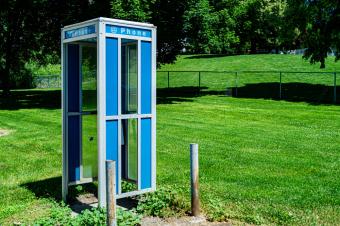
"My son is almost 20, but he is on the level of a five or six-year-old. He'll never be able to get a typical job. He'll never be able to live on his own. He will always live with us." Having an autistic child is a big responsibility, much bigger than most people realize. Paula George found out that her son was on the spectrum when he was a toddler, but she had little support due to the limited resources available at that time.
Fast forward 16 years later, and she's now the Executive Director of Autism Involves Me (AIM), an organization that provides beneficial resources to local families like hers. This is the story of the power behind a mother's love and the amazing organization that I have seen firsthand have an impact on local families.
Paula's Story: Stepping Out to Help Other Families

Paula George has been the face of AIM since 2017, but she's been the parent of an autistic child for almost 20 years. She knows both the joys and struggles of having a child with this type of diagnosis — and wants more than anything to help others receive the resources that she originally lacked.
"We got an autism diagnosis where they said 'here's your paperwork and therapy. Good luck,'" Paula said. This set a fire in her belly to find the best care and support for her child, and that was just the beginning.
"I heard about a small autism support group at the time. It was just a small network of families who would come together, maybe once a month or so, just to let their kiddos play and to help each other learn more about autism."
This quickly transformed into a passion that led her to start AIM, and it has greatly benefited the Northwest Arkansas community. "We just want to make sure that all of the mothers and fathers in Northwest Arkansas who have kids on the spectrum know that they're not alone and know that they have a safe space to come to vent, to have a class, to learn more about autism, or to find help to better raise their children. We make sure that they're integrated into the community and not just staying at home because they're scared or embarrassed," Paula shared.
While autism research is an amazing goal, AIM doesn't put money into researching the disease. Instead, they try to meet some of the immediate needs families have. All funds are put directly back into the community, with the focus of making daily life easier for the one in 36 people who are on the spectrum.
Key Ways AIM Helps Meet the Needs of Families Impacted by Autism

As a support network for families who are impacted by autism, the organization helps provide some of the things that are so important to helping them thrive.
By allocating all of its funds directly to the community, AIM can:
- Put on sensory-sensitive, family-friendly events throughout the year
- Host classes for families and caregivers so that they can better address their children's specific needs
- Offer grant programs for families and educators that provide resources that insurance doesn't cover
"Insurance really only covers the therapy sessions they need, but a lot of our kids are sensory seeking or have sensory aversions," Paula said. What this means is that these individuals need additional tools to aid in their regular sensory input challenges.
Paula explained, "Under our grant program we provide coverage for anything from trampolines and swing sets to swings that will hang in your house to fees for special needs camps, swim lessons, and horseback riding lessons. Anything that may be beneficial therapeutically or educationally for the individual is something that we consider."
What Makes the Events So Powerful
While living in Northwest Arkansas, I had the distinct pleasure of serving as the emcee for one of their walks. On the surface, it just looked like another 5K, but when you took the time to look at the attendees, you could see that this was so much more. It was a safe space for those on the spectrum to truly be themselves without the worry of others wondering why they were acting a certain way.
This was a place for families to connect with others going through the same journey, build friendships, and find out about resources available to them. AIM also made sure that there were spaces, called sensory tents, to help attendees who may have felt overwhelmed by the big crowds or loud noises that come with these types of events.
What many don't realize is that a small feature like the sensory tents is the difference between a child with a sensory processing disorder attending an event or deciding to stay home. AIM strives to involve everyone, and that's something that can be hard to find in this world.
It's a Community Effort to Help Everyone Feel Connected
Paula is one of many faces within this organization who have made receiving an autism diagnosis easier. All the board members strive to bring resources to their community and make a difference in the lives of the people who receive an autism diagnosis.
"Our mission is to empower and support families who are impacted by autism by promoting a culture of inclusion and acceptance. We strive to support local families to ensure that they are integrated within the community. We want to make sure that they're not walking this diagnosis alone," Paula said.
The Many Definitions of Autism

One reason why Paula and so many other families struggle to find help and support is because there are so many misconceptions and negative perceptions about autism. Laura Cleary, a comedian and social media influencer recently discovered that her son Alfie has severe autism, and upon receiving this diagnosis, she described this disorder in the most perfect way:
"The CDC says it's a developmental disability that can cause significant social, communication, and behavioral challenges. Hmmm, okay, but I'm wondering why they left out that autism can also cause an incredible ability to think logically, to memorize, and learn information quickly. Why did they fail to mention that it can cause exceptional honesty and reliability, alternate problem solving and an incredible sense of wonderment about the world? Why isn't that part included?"
The reason that the word "spectrum" is in the name is because the symptoms and the severity of this condition can vary drastically from person to person. You can have a child that will never talk or never be potty trained with extreme sensory aversions or you can have a child who is a true savant in a specific subject, whose IQ is off the charts but is socially awkward and struggles in certain sensory situations.
In other words, no two autism diagnoses are exactly alike. Not only that, but Paula mentions that many times you may not even realize that a child has autism.
There's a lot to learn about this neurological disorder, and there have been great developments made in recent years. However, funding and support for individuals with this condition are still greatly lacking. This is why organizations like AIM are so important.
Quick Autism Facts
- The first autism studies were done in the 1960s and 1970s. At this time, researchers reported that only two to four children out of every 10,000 had autism.
- Fast forward to March of 2023, now the Centers for Disease Control reports that "one in 36 (2.8%) 8-year-old children have been identified with autism spectrum disorder."
- Before 1980, autism was seen as a psychiatric disorder, not a developmental disorder.
- This means that proper research and resources are limited, especially in more rural communities.
- According to the National Autism Association, "autism is the fastest growing developmental disorder, yet most underfunded."
- "Individuals with autism often suffer from numerous co-morbid medical conditions which may include: allergies, asthma, epilepsy, digestive disorders, persistent viral infections, feeding disorders, sensory integration dysfunction, sleeping disorders, and more."
- Almost 40% of individuals with autism have seizures.
- Another 40% of autistic children are non-verbal.
How You Can Help to Empower Autism Families
Money for these valuable services and resources is raised online and at AIM's community events and fundraisers throughout the year. Currently, all the funds go directly to families located in Washington, Benton, Carroll, and Madison counties of Northwest Arkansas. However, anyone is welcome to join them for their events.
With enough donations, they hope to expand their scope to assist even more individuals with autism. Even a small donation can have a big impact on a family. If you are interested in donating or finding out more information, you can visit their website www.aimnwa.org.
More than anything though, the way that you can help those with autism and their families is to not be too quick to judge a book by its cover. We live in a big, beautiful, and sensory-supercharged world and those on the spectrum just take things in a little differently. We can all be empathetic to the parents who are trying to navigate the diagnosis and teach our own children to love and treat everyone equally.







